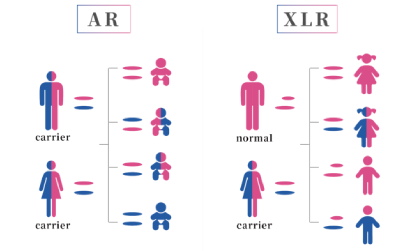聚焦生殖健康 提供完整普惠IVD产品
-
背景介绍:
扩展性携带者筛查(Expanded Carrier Screening, ECS)是一种基因检测技术,旨在识别携带遗传性疾病相关致病性变异但无临床症状的个体。通过同步分析数百个基因,ECS帮助育龄夫妇评估将单基因遗传病传递给子代的风险。
遗传模式与风险:
1、常染色体隐性遗传病:若夫妻双方均为携带者,子代有25%的概率患病
2、X连锁隐性遗传病:若母亲为携带者,男性后代有50%的患病风险ECS适用人群与价值:
建议所有育龄个体(包括孕妇及计划生育者)接受ECS检测,以实现:
1、支持知情家庭规划
2、提供产前风险管理窗口期
3、优化对潜在遗传病的应对准备临床适应症:
1、明确携带者状态
• 通过临床遗传咨询,厘清个体及配偶的携带风险
2、健康生育规划(高风险家庭)
• 胚胎植入前遗传学检测(PGT):采用PGT-M技术结合试管婴儿,筛选无目标遗传病的胚胎
• 产前诊断:通过绒毛活检(CVS)、羊膜腔穿刺或非侵入性产前检测(NIPT)确认胎儿状态
• 替代方案:根据风险分层选择供体配子、领养,或在加强产前监测下自然受孕
3、协调专科诊疗
• 确保可及母胎医学专家及新生儿重症监护资源
4、制定管理方案
• 为患病子女准备个体化干预措施,包括可用疗法或临床试验





